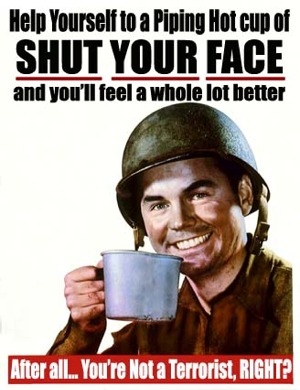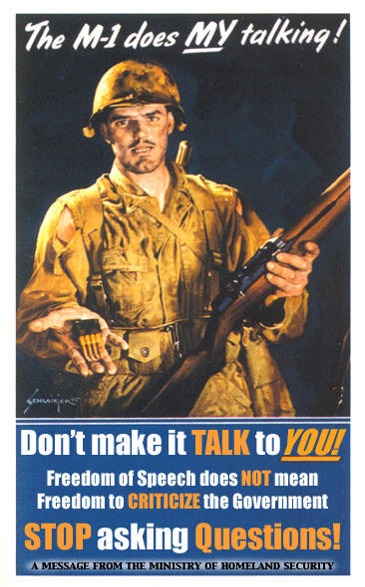Pasley Blog Archive 1-1-03 to 3-31-03
Click here to access the current Pasley blog.
Home Truths from Unlikely Sources 03/21/03 11pm
Given the inability of the Democrats and the mainstream "liberal" media to offer the Bush imperium any significant criticism as a foreign capital is leveled -- I notice the Times dutifully refers to "Allied" troops and "coalition" forces as though the whole world was supporting us -- we will have to take what critical journalism we can get, even it if comes from really unlikely sources, such as comic book writers and conservative pundits.
The pundit is Paul Craig Roberts, a veteran or current denizen of numerous conservative think-tanks and the Wall Street Journal editorial page. Writing in The Washington Times, the Moonie-funded conservative alternative to the Washington Post, remember, Roberts manages to compare the Shrubbers to both the Nazis and the Commies, and declares it not unreasonable that Bush might be tried as a war criminal himself someday. This is stuff that would most of us liberals a visit from the FBI, at least. The column ends thusly:
Mr. Bush and his advisers have forgotten that the power of an American president is temporary and relative. The U.S. is supposed to be the world's leader. For the Bush administration to pursue a policy that sets the U.S. government at odds with the world is to invite comparisons with recklessness that we have not seen in international politics since Nikita Khrushchev tried to install nuclear missiles in Cuba. Is Saddam Hussein worth this much grief?
 |  |
On to the comic book writer. Interviewed about his forthcoming book of anti-propaganda propaganda posters, Micah Ian Wright, a former Army Ranger and current author of the military-themed "sequential art" series Stormwatch: Team Achilles(and others), explains why he supports the troops but opposes the war they have been ordered to fight and the politicians who have given the orders:
"There's a big difference between the President and America," Wright said."I support America. Long-term, this President is doing so much damage to America's interests overseas, our environment, our economy and to our government's budget that I consider it unconscionable not to speak out against him. It is a fallacy that to speak out against the President is Un-American... especially when I see him provoking wars with Third World Nations in order to silence the critics of his domestic failures.
Wright also reveals that it was his actual military experience that cured him of his former hawkish conservatism (a problem from which so many members of the current administration do not suffer):
"I used to be a big-time Conservative... so what happened? I had what alcoholics call 'a moment of clarity' as I gazed out over Panama City burning to the ground during Christmas 1989. See, the US Army had just burned it to the ground. As I watched 80,000 people flee as we burned their homes to cinders, I resolved to learn about what had led me there and how to avoid that type of situation in the future."
I have attempted to reproduce a few of Wright's scary/hilarious doctored propaganda posters here.

Accidental Critical Journalism? 03/21/03 1am
Change one word in a Times quotation used below and it could be talking about some entirely other country's leadership: ". . . their attitude has seemed redolent of an authoritarian cabal in denial, incapable of grasping reality, either about their external enemies or the mood of less powerful [citizens], because of years of listening only to echoes of themselves."
Media's Early IraqWar® Coverage Leaves Murrow Reputation Safely Unchallenged 03/21/03 12:30am
I know it must be stressful up there in the target zone, and probably a little slow, but I do wish the New York Times man in Baghdad (John F. Burns) would leave off the attempts at "literary journalism" evident in tonight's report. The piece is full of heavy-handed scene setting and polemical digressions that come close to depicting the American attack as the thunderbolts coming down to smite some foolish mortals who dared to challenge him. This is obviously meant to recall classic WWII journalism, but I think Edward R. Murrow and the boys are safe. They showed considerably more commitment to actual information and occasional shows of genuine emotion than the cheap rhetorical stylings of modern political journalism, which are chiefly designed to make individual figures look good or bad without substantively denouncing or praising them.
For instance, three paragraphs are spent critiquing Saddam's speaking style, including his use of "what looked like a large, grade- school exercise pad." This was apparently to convey the tiny bit of speculative pseudo-news that the first U.S. attacks must really have Mean Mr. Mustache quaking in his jackboots. Honestly, now that people are dying, what useful purpose is served by writing snide little stylistic pen portraits of the enemy's leader as if he were a "stumbling" American presidential candidate?
(Alternatively, Burns may have trying to make his own little contribution to the new war's first inane media controversy, over whether the first missile strike had killed Saddam, as if our "eerie" high-tech weaponry was so bitchin' it could lock in one guy's DNA patterns all the way from Fiji. Rummy seems to actually take seriously the idea that you can win a war with one missile to the head. The media for its part sounded a pack of little kids in the back seat: "Is he dead yet, Daddy? Is he dead yet?" I do pine for the days of yore, two or three years ago in the previous century, when the attempted assassination of a foreign dictator was a still shameful secret.)
But back to Burns, trying hard to project himself back to Berlin, 1945, or a bad screenplay ab